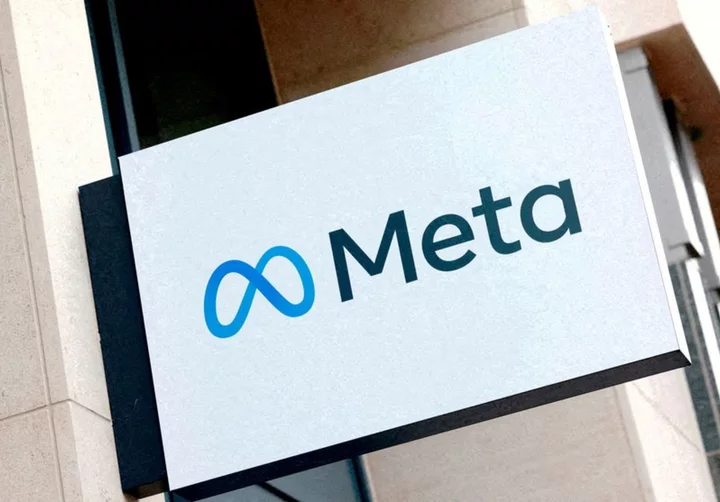
Does Microsoft own the letter 'X' trademark?
We didn’t think it was possible, but Elon Musk’s tenure at Twitter took an even stranger turn this week after he rebranded the social media platform to “X” out of the blue. It turns out Musk has been obsessed with naming things after the letter all his career, but it still came as a big surprise that he decided to change the name of an internationally recognised brand overnight to something that sounds more like a porn site or gentleman’s club. The logo is a pretty generic graphic, which replaced the famous blue Twitter bird after Musk crowdsourced ideas from users last weekend. It’s left people with more questions than answers at this point – one of them surrounds the issue of Microsoft and potential disputes over the letter “X” as a trademark. “X” is pretty common in names of companies and organisations and the likes of Meta and Microsoft reportedly have intellectual property rights around the letter “X”. Sign up to our free Indy100 weekly newsletter In fact, as Reuters reports, the likelihood is that Twitter – now "X" – could well face legal action over the name change. "There's a 100 per cent chance that Twitter is going to get sued over this by somebody," said trademark attorney Josh Gerben. According to Gerben, there are close to 900 active U.S. trademark registrations surrounding the letter “X”. Microsoft does indeed have an X trademark which it’s held since 2003. However, it’s related to communications about its Xbox video game system. Meta Platforms also owns a trademark for an “X”, which is related to software and social media. According to Gerben, the two companies are unlikely to sue over the Twitter name change unless they believe the move encroaches on their brand equity. Douglas Masters, who is a trademark attorney at law firm Loeb & Loeb, said [via Reuters]: "Given the difficulty in protecting a single letter, especially one as popular commercially as 'X', Twitter's protection is likely to be confined to very similar graphics to their X logo. "The logo does not have much distinctive about it, so the protection will be very narrow." Social media user Keith Edwards posted on the topic by uploading a screen grab of Microsoft’s 2003 patent for “X”, writing: “Microsoft owns the trademark for X. This is just too good.” A community note was added to the post which read: Microsoft only holds this trademark for videogame-related services; this wouldn't affect Twitter. “However, Meta holds the ‘X’ trademark for ‘online social networking services... social networking services in the fields of entertainment, gaming and application development…’” Have your say in our news democracy. Click the upvote icon at the top of the page to help raise this article through the indy100 rankings.
2023-07-25 17:24

Nintendo Live coming to Tokyo in 2024
Nintendo Live will journey to Tokyo early next year after its North American debut.
2023-08-30 19:23

Westcliff University Honors Global Graduates in Historic Commencement Ceremony
IRVINE, Calif.--(BUSINESS WIRE)--Jun 27, 2023--
2023-06-28 00:46

China to require all apps to share business details in new oversight push
By Josh Ye HONG KONG (Reuters) -China will require all mobile app providers in the country to file business details
2023-08-10 11:21

The best VPNs for unblocking Japanese Netflix
We are living in the golden age of streaming, with absolutely loads of platforms hosting
2023-07-20 18:28

Meta strikes deal to sell VR headset in China - WSJ
(Reuters) -Meta Platforms has struck a deal with Tencent Holdings to sell a new, lower-priced version of its virtual-reality (VR)
2023-11-10 12:00

This is what the 'most attractive man' in each country looks like according to AI
Artificial intelligence has revealed what the most conventionally attractive man looks like according to the tastes of different countries. AI technology has advanced to mind-boggling capabilities, leaving many fearful for what the future may hold if it ends up in the wrong hands. But until then, others have decided to have fun with AI and use it to decipher the peak of physical attraction in men across the globe. Midjourney is a generative artificial intelligence program and it has been used to make images featuring men mostly with large muscles and chiselled jaws, representing the “Most attractive man in a country”. The reel of photos included the most attractive men in 20 different countries including, Greece, Syria, the USA and North Korea and the results were shared on the Midjourney Reddit community. Sign up to our free Indy100 weekly newsletter The candidate for North Korea could be seen wearing what appears to be a military uniform and had a portrait of a leader behind him. Reddit - Dive into anything from midjourney The most attractive man in the Central African Republic had dark brown skin and chest tattoos and wore lots of beaded necklaces. Some Reddit users compared the Kazakhstani man to a “Disney adaptation villain” or a “spicy Harry Styles” as the AI version resembled some of the singer’s features such as his eyes and hair. The AI-generated American man featured shoulder-lengthed light brown and blonde hair with blue eyes, a beard and big muscles. One Redditor commented: “I like how USA is literally just Chris Hemsworth lol.” Another said: “Men of Reddit take note: to be attractive you must look concerned, sincere or intense ... ideally all three at once.” Have your say in our news democracy. Click the upvote icon at the top of the page to help raise this article through the indy100 rankings.
2023-07-11 22:17

Sick sea lions washing ashore in California due to algae bloom
By Omar Younis LOS ANGELES Rescued from the beach, a sick sea lion and her newborn pup are
2023-06-27 18:23

The Best External Hard Drives for 2023
In an era when many gigabytes of cloud storage storage cost a mere few dollars
2023-05-21 03:45

The Pokemon Company donated $200k to Hawaii Wildfire Relief Fund
The Pokémon Company has urged people to donate to the relief efforts.
2023-08-15 19:16

Scholz’s Dream of Climate Revolution to Revive Germany Is Dying
Chancellor Olaf Scholz is struggling to pull off his plan to harness the transition to green energy and
2023-09-16 13:51

The Girl With the Green Ribbon: A Grisly History of ‘Headless Woman’ Stories
Precursors to the story about the girl with the green ribbon were written by Washington Irving, Alexandre Dumas, and more famous authors.
2023-09-19 01:24
You Might Like...

Scientists design new shapeshifting 'morphobot' and it's like a real-life Transformer

Ethanol Maker Says US ‘Green’ Jet Fuel Fate Hinges on Tax Policy

Flaring Ticks Up in Texas Oil Patch, Showing Limits of ESG Pressure

SolarWinds executives receive Wells notice from US SEC

Teresa Giudice roasted for 'heavily filtered' photo of her posing with Buddha statue: 'Pulled, tucked and filled'

Kensington Expands Family of High-Performance Docking Stations for Surface Devices

Trump-tied SPAC Digital World names Swider as permanent CEO

Adin Ross vs Jake Paul: Kick streamer suffers third knockdown in 10 days, trolls say he's 'embarrassing himself'
